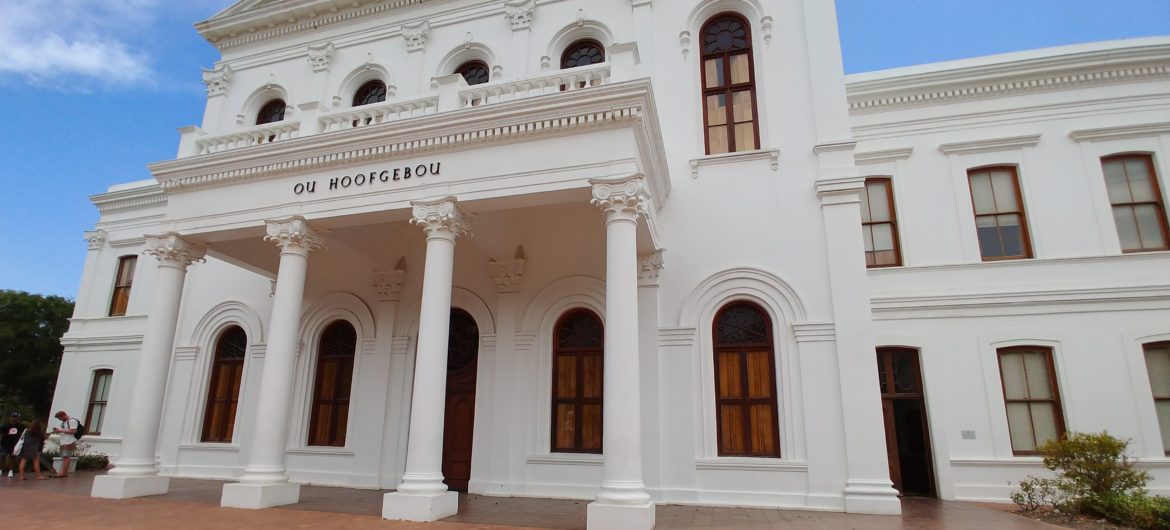EEarlier this year I described the dire situation of leadership on Stellenbosch University campus, specifically highlighting leaders dealing with mental health issues, or who are ill equipped for their positions. The inevitable result of this circumstances was poor leadership and a lack of productivity in many areas.
With the 2019/2020 SRC elections nearing for Stellenbosch University, it is an important time for students to be politically sophisticated when considering which candidates are best to lead and represent them. This is a crucial moment specifically given the many attacks on student access and transformation already this year.
Food, Accommodation and Funding
A major flaw witnessed by students during the first semester was the crisis involving student access, particularly the fact that students receiving NSFAS and similar bursaries either received their allowances late, or did not receive anything at all. This consequently led to many students’ human dignity being infringed where they had to sleep in computer rooms on campus.
In response to this, and after realizing that “official” programmes such as #Move4Food and SRC initiatives had failed, many non-positional leaders and activists came together in groups such as the People’s Movement. At one point student activists from the People’s Movement had to curate a confidential database to organise who to contact to offer assistance.
It must, however, be noted that the (now outgoing) SRC were also restricted in terms of budget and spending approvals — the University’s Student Affairs department had limited the SRC’s powers and capabilities to a point where the SRC had to battle to assist students. Still, SRC members should be vigilant of management decisions that would limit the SRC’s capabilities to represent and assist students.
Therefore, any SRC candidates must be prepared to be outspoken, critical and student-focused. Further, they must be prepared to engage with University management as colleagues, and not as subordinates. The student corpus needs a reason to find renewed respect for the Student Representative Council as a legally recognised structure through the Higher Education Act. To this end, it needs to be restored to effectiveness.
Transformation vs Regressiveness
Thusfar, 2019 has been an interesting but frustrating year regarding the work towards true campus transformation. Unfortunately, students have seen a resurfacing of years-old discussions and topics, with people questioning social issues that the community should have been after years of discussions, task team reports, and academic research articles.
As an example, consider the existence of rape culture, white privilege and male privilege. These are definitive realities, especially on Stellenbosch University campuses. However, these realities have been questioned again this year, bringing up painful and traumatic experiences of marginalised groups, especially womxn and people of colour.
Unfortunately, the SRC did not have a Transformation Officer for long, and several SRC resignations left the Transformation Office, the Institutional Transformation Committee (ITC), and a few singular student leaders as the only transformative forces on campus. Only a few of those pro-transformation student leaders were vocal about the regressive absurdities, but the the tongues of the Tranformation Office and ITC were tied.
The SRC, strangely enough, remained extremely quiet about this. While some members did attend meetings about these issues, they never publicly expressed their view. In contrast, they were very strategic in quickly condemning the “Virgin Active masturbator” given how simple the matter is to denounce. Socially regressive forces appear to have posed a difficult conundrum for them.
SRC candidates must thus be encouraged to be unapologetically vocal about social justice and human rights. These are important issues that have to be tackled on our campus so that the process of transformation can continue. It is imperative that we continue following the societal roadmap laid out by our Constitution.
Mental Health
In recent years an apparently new consequence of being involved in the SRC has emerged, namely the deterioration of students’ mental health. While debatable, many outgoing and ex-members can attest to the difficulty of working in such a space, and that one should be prepared for conflict, stress, and a heavy workload.
Furthermore, SRC candidates should consider themselves and their well-being during their tenure, if elected. Whether or not they are already suffering from ill mental health, it would be wise to use the services of a psychologist or therapist to regularly discuss the psychological effects of their duties.
Clearly there are many expectations for the next SRC. There will of course be those who expect perfection, but many, including myself, would only like to see new student leaders recognise the humanity of their fellow students, and be dutiful, impactful leaders who will uphold the Student Constitution and ultimately, the Constitution of the Republic of South Africa.
